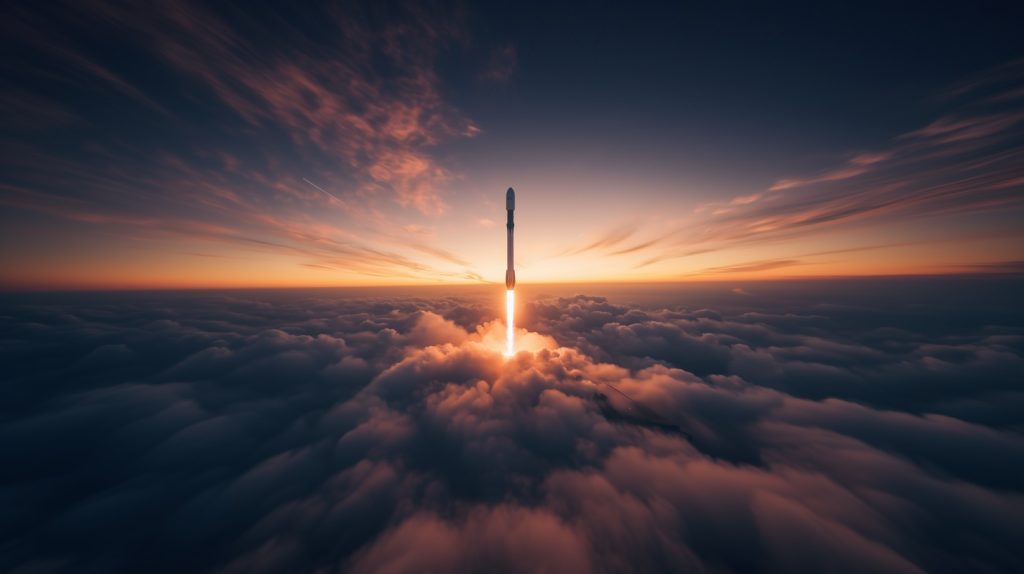“The Waiting Is the Hardest Part”: Why Launch Dates Change, And Why That’s Normal

Co-Founder & CEO, Celestis, Inc.
Tom Petty once sang, “The waiting is the hardest part.” After four decades in the space business, I can confirm: he wasn’t wrong.
At Celestis, we often hear thoughtful and heartfelt questions from families like yours:
“Why can’t we get an exact launch date?”
“Why has our flight been delayed again?”
“Why aren’t more details available about the mission provider?”
These are more than technical questions. They come from a place of deep emotion, and a desire to honor a loved one in the most meaningful way possible. We understand that. And the answers lie in the unique and complex world of modern spaceflight.
Launching a Memorial Spaceflight Is Not Like Booking a Plane Ticket
In 2024, there were approximately 260 orbital launch attempts worldwide, a record-breaking number, but still relatively rare when compared to the 100,000+ commercial flights that take off every day.
Most of those 260 rocket launches were dedicated to placing high-value satellites, scientific instruments, or crewed missions into space. That means the scheduling of each rocket, and the payloads it carries, is tightly managed, highly coordinated, and subject to last-minute changes.
This matters because Celestis flies as a secondary payload, also known as a “rideshare.”
What It Means to Be a Rideshare Payload
Celestis launches are made possible by partnering with larger missions. We attach our memorial payload to a spacecraft or rocket that already has a primary purpose, such as deploying a satellite constellation or delivering a science experiment into orbit.
This approach is essential for keeping our services affordable. But it also means:
- We do not control the rocket or the mission timeline
- We must wait for the primary spacecraft to be ready for integration
- We are integrated later in the process, once primary systems are finalized.
Think of it like being invited to ride along on a voyage already planned. You are part of the journey, an honored part, but the schedule, destination, and timing are led by the primary mission.
When a satellite project experiences a delay in testing, or the launch vehicle is reassigned or rescheduled, our payload must adjust as well. It’s not that something went wrong with your memorial, it’s that we are flying alongside some of the most sophisticated and carefully engineered technologies in the world.
The Realities of Modern Launch Scheduling
Even after we’ve secured a launch and begun preparing flight capsules, the countdown clock can still shift. This is the norm in aerospace.
For context:
- NASA’s Space Shuttle launched on time just 40% of the time during its 30-year history.
- Virgin Galactic announced its first customer flights in 2003, and flew its first commercial mission 20 years later, in 2023.
- Even SpaceX, the most prolific launch company today, sometimes postpones launches multiple times for a single mission, often for safety or weather reasons.
These aren’t failures, they’re examples of responsible mission planning in a complex environment.
How Celestis Selects Launch Opportunities
Every Celestis mission goes through a rigorous evaluation process before it’s ever announced to families. We consider:
Affordability
We select rideshare launches to ensure our services are financially accessible. Buying an entire rocket would be cost-prohibitive for all but the wealthiest, and unnecessary.
Reliability
We only fly with trusted providers, always assessing technical capability, financial resources, and in space performance record. While all launches carry some level of risk, Celestis has experienced aerospace professionals on staff and advisory boards to ensure our best efforts to select world-class mission providers.
Scheduling and Accessibility
We favor launch locations like Cape Canaveral, Vandenberg, and Spaceport America, not only because of reliability, but because they allow families to gather and witness the event in person when possible.
We've successfully flown with NASA, SpaceX, UP Aerospace, and other trusted mission providers. Every launch is the result of careful planning, hard-earned expertise, and deep respect for the responsibility we carry.
Why Some Information Is Limited
In some cases, Celestis is bound by strict non-disclosure agreements (NDAs) with our launch providers. These agreements, common in the aerospace industry, are designed to protect proprietary technology or sensitive government contracts.
When NDAs are in place, we provide families with private updates, even if we cannot announce certain details publicly.
This confidentiality ensures we maintain trusted relationships with launch providers, allowing us to continue offering memorial spaceflights well into the future.
The Future Is Bright, and Growing Fast
While delays can feel frustrating, it’s important to remember: the space industry is growing rapidly, and so are your opportunities to participate.
In fact:
- 2024 saw the highest number of global launches ever recorded
- The U.S. accounted for over half of all flights, led by SpaceX
- Commercial rideshare missions are increasing steadily every year
This trend means more mission availability, more destinations (Earth orbit, Moon, deep space), and more families fulfilled in their dreams of launching a loved one to the stars.
Our Promise to You
At Celestis, we have never failed to complete a memorial spaceflight mission. We may face delays, just like every other entity in the space business, but our dedication to your loved one’s journey is unwavering.
We keep families fully informed, respond to every question, and stand by our commitment:
Every confirmed participant will fly.
Whether you attend in person or join us virtually, we will be there with you, for the launch, the celebration, and the extraordinary moment your loved one reaches the stars.
Thank you for your continued trust, patience, and belief in what we do. Together, we are making history, one legacy at a time.


